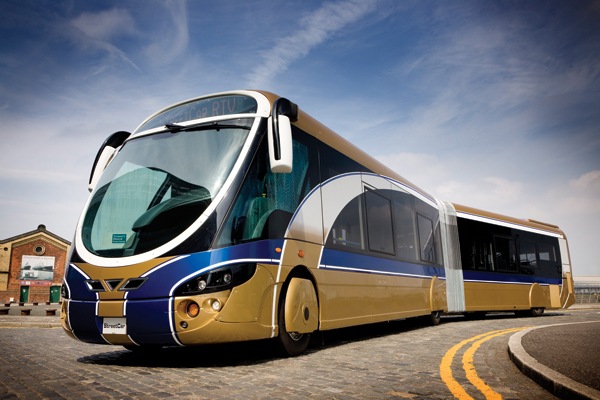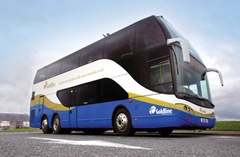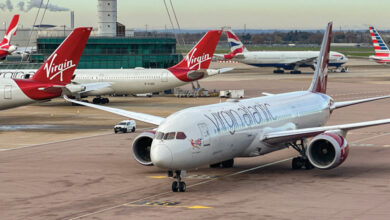The road to reform
agendaNi unpacks the plans for a new public transport agency to oversee the province’s sector.
Chief among the new recommendations for reform is that a new public transport agency should be set up, reporting to the DRD. Consultation took place between November 2009 and February this year and a Bill was introduced into the Assembly on 21 June to legally provide for the new proposals.
The new agency will be charged with forming the overall strategy and will also act as a watchdog by regulating the system through public transport contracts.
According to the DRD, the agency is essential to comply with EU regulations. It will also take on awarding route permits, which up until now has rested with the Department of the Environment, and be tasked with filling the gaps in the transport network.
The DRD currently either part-funds or supports some services run by private operators, largely for children and older people, but gaps do exist. There was a possibility that Translink could take the role on but this was decided against as the company would then hold a complete monopoly.
Simply relying on competitive pressures, the department believes, is not sufficient to regulate the sector. Rather direct regulation will “achieve best value for both business and users and tax-payers”.
Travel fares increases will also be kept to a minimum and the new agency will have powers to oversee fares on services that have been awarded through competition as opposed to those awarded directly to Translink.
That company will retain its position as the main operator in the province, although it will be subject to greater regulation. Most services will not become competitive but there are two exceptions: the Belfast rapid transit system, and new park and ride services. Private operators will, though, be invited to work through the new service permit system whereby they could add to Translink services in place at peak times or run routes in areas where there are infrequent or no services.
As only commercially viable services will be passed by the department, it will not provide any extra funding, though the operators will be eligible for a fuel duty rebate.
Launching the consultation in November, Conor Murphy said that he wanted to make public transport people’s first choice instead of a last resort. That modal shift from the car is perhaps the most difficult test the new reforms face. Frequency and reliability contribute significantly to that shift, the paper says, but one other proposal which could help is integrated ticketing.
Although the transport network here is relatively well-connected, ticketing has proved to be a barrier. A system whereby passengers with one single ticket could make journeys made up of more than one route or one mode of transport is proposed, as is a system of off-vehicle ticketing, similar to the Luas in Dublin or the Tube in London.
It is anticipated that such a system would decrease boarding time and overall journey time. Penalties will be imposed for would-be fare dodgers – a problem which honour systems always face.
In keeping with the integration theme, there are also plans to re-designate bus stops as “shared facilities” with other public transport providers. Information would be available in those areas for all providers who use it. Aligning operators’ timetables will also be considered.
Local councils would have a consultative role in the formulation of local public transport plans. As the plans are indeed new, there has been no consultation with local authorities in that sense previously. However, in the plans that cover transport, the Regional Development Strategy and Regional Transport Strategy have always been open for consultation and councils would have been encouraged to respond.
Off-street car parking was to transfer to the new councils in May 2011 but since local government reform has once again been delayed, that responsibility will remain with the Roads Service. In turn then the DRD will have the power to introduce higher car parking charges which could perhaps discourage people from using their cars.
Contracts issued by the new agency would be on a performance basis. They will though, in the main part, be awarded directly to Translink who will add detail to the schedules. Should any voids occur in the service, permits will be awarded to private operators, who will run the service.
The UK Department for Transport will have a say in how the province develops a rail freight sector, which currently does not exist. Exact details have been left to a working group which will report later this year.
Comments
A total of 103 submissions were made in the consultation and 11 public meetings were also held, attended by a total of 194 people. Most of those responding backed continued regulation, the performance contracts, and the concept of a new agency; only a small minority took a free market approach.
Some warned that small operators and community transport providers could be disadvantaged by having to pay for the integrated ticketing system.
Written instructions and station signs will be translated into Irish to fulfil the department’s commitment to the European Charter for Regional and Minority Languages. Most of the 64 submissions on multi-lingual signs supported the idea, especially for Irish, although some responses said that ethnic minority languages should not be ignored.
Bus and rail in numbers |
|
| 188.8 million | Miles travelled by NIR passengers |
| £81.8 million | Ulsterbus ticket sales |
| 44 million | Ulsterbus passenger journeys |
| 37.7 million | Miles driven by Ulsterbus |
| £32.7 million | Metro ticket sales |
| £28.9 million | NIR ticket sales |
| 26.5 million | Metro passenger journeys |
| 10.2 million | NIR passenger hourneys |
| 8 million | Miles driven Metro |
| 2,450 | Ulsterbus staff |
| 1,278 | Ulsterbus buses (average age 7.2 years) |
| 967 | NIR staff |
| 773 | Metro staff |
| 299 | Metro buses (average age 6.2 years) |
| 211 | Miles of NIR track |
| 116 | NIR passenger coaches |
| 22 | NIR stations |
| 20 | NIR locomotives |
| Source: Northern Ireland Transport Statistics 2008-09 | |







